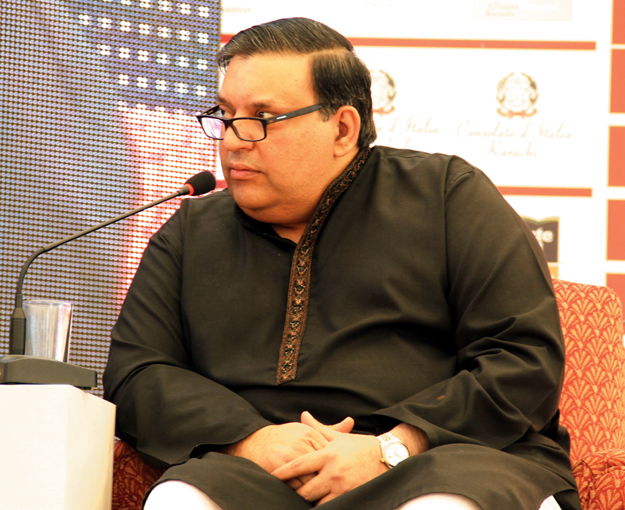Sarwar Bhatti produced one of the most memorable films in Lollywood titled Maula Jatt — biggest box-office hit ever in Pakistan’s history — that ruled the big screens for over five years. Released in 1979, clouded with the confusion of General Ziaul Haq’s reforms and shifts in Lollywood, the film reached cult status and the Pakistani film industry changed forever.
“During a time of vulgarity, we changed the parameters of Lollywood for good by making films like Maula Jatt,” says Bhatti, who aside from having other businesses runs a beat-up distribution office in Lahore’s film district Royal Park.
In a career that barely lasted 10 years, Bhatti has only produced five films. He says that his films have promoted “Islamic culture” and given Lollywood a new look.

“It was an unjust claim that Maula Jatt had promoted violence,” says the conservative and proud producer. “You have to realise, it rid Pakistani cinema of Indian or Hollywood influences which had corrupted the films,” Bhatti adds about Maula Jatt, the sensation of the ‘80s. He feels that the film represented the true culture of Pakistan.
Bhatti’s direct involvement as a producer did not last long, but it was not due to any financial issues, he assures The Express Tribune. “I had the complete capital to make a film and easily ensured that it was of quality,” says Bhatti. He boasts about having a Mercedes when he entered the film industry, and feels the only reason his career in Lollywood was short-lived was due to the structure within the industry that never improved.
“During that time, cinemas were still being made and cinema owners were taking the films’ earnings,” says Bhatti, with disappointment in his voice. “And the government was profiting by putting 100% or 200% tax on a single film.”
Bhatti explains the issue was the lack of profit for him; film-makers were not fully earning a return on their projects. “After watching successful films in cinemas, other people would be inspired to make films only to realise that it just wasn’t profitable.”
He feels that if the right environment was provided in the Pakistani film industry, old producers would be willing to return to film-making.
Currently, Bhatti’s small office for distribution seems to be simply the last figment of his connection to film. More importantly, his film Maula Jatt, which is arguably the most screened and copied film in Pakistan, has not given any profit to Bhatti. The illegality, which is prevalent, means he lost millions of rupees in royalties.
“I have never sold my films to cable companies or video rights,” says Bhatti. “I know the value of my property and I have never given it to anyone. Everyone has used it [Maula Jatt] without any legal permission.”
“This illegality is rampant but that’s the case in our society,” shares Bhatti. “I defend my rights through taking action against those who used my film without my permission, but there are thousands of people who have taken it illegally.”
Bhatti is a traditionalist and believes that the mindsets of people in the Pakistani film industry will have to change for advancement. He explains that the irony of Pakistani cinema is that censorship laws are only limited to Pakistani films, while foreign films can be passed without any questions.
With regard to the foreign content being aired on Pakistani television these days, Bhatti says, “If a Pakistani film was to show the same thing, it would be censored for being against national interest. Why are Pakistani films held to a different law while television or foreign films get a free hand in screening whatever they want?”


















